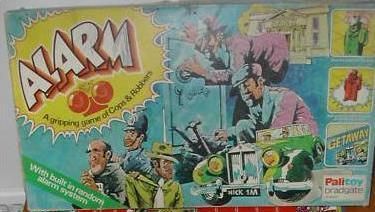I'm not going to pretend I remember when I got my first Diplomacy game. It was that long ago that, if I attempted to name a year I'd get it wrong.
It was published by Avallon Hill, though, and a typical UK/European board. Russia was purple, England pink, France... well, what colour do you call that? 'Blue' seems to do a disservice to blue.
I was young enough that the closest I got to playing the game was with family. This normally meant the 6-player version and involved me, my brother Steven, my parents, Uncle Alan and Auntie Margaret. Dip games were few and far between because we also had Treasure of the Pharaohs, Game of Life, Monopoly (yawn), Anti-monoploly, Alarm... Board games were great.
There was one occasion when we got a 7-player game, one Christmas when Auntie Barbara was there. The problem was that it took a long time to explain the rules to a new player. I don't think we got very far into the game.
My game was special, though. Russia had two sets of units; Germany didn't have any. I found a pot of black acrylic paint from an Airfix set and painted one set of purple shells and ships black.
Maybe it was this secretive Russian army which meant Germany never seemed to do well, often at the expense of Russia..?
In fairness, the Dip board saw more use when my brother and I played the 2-player game in school holidays. This is more like Dip-chess, of course, but, well, it was as good a way to pass the time as any.
I'm honestly not sure what sparked which interest. Did Diplomacy spark my interest in history, so that I took history at A-level, or was my interest in history what attracted me to Diplomacy?
Either way, one pushed my interest in the other. I got an A grade in my A-level (the highest possible then) and I was sold on playing Dip... although I didn't know it yet.
Time moved on, I got older, board games went down in my interests... they lacked boobs, after all. I started some dead-end work, got bored, went to university and Dip faded from my life.
Not for good, though....




Comments
Post a Comment
What do you think?